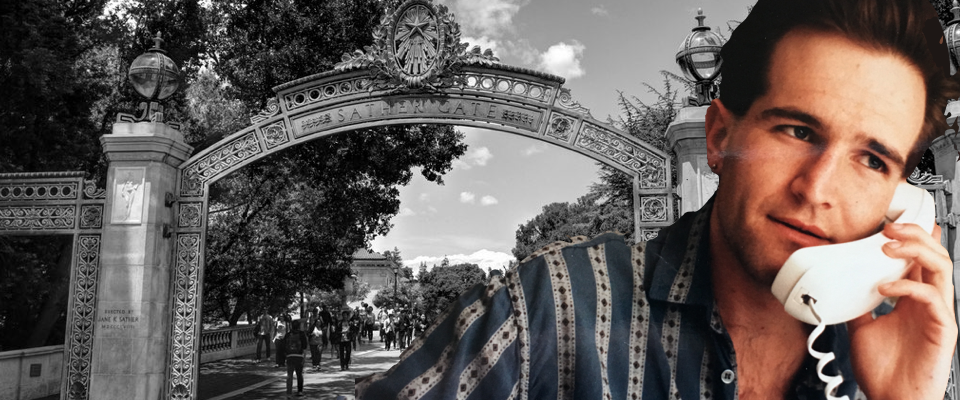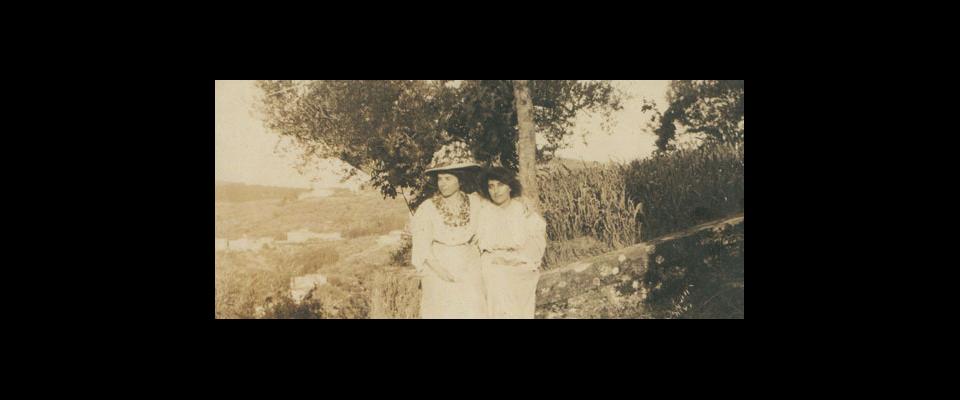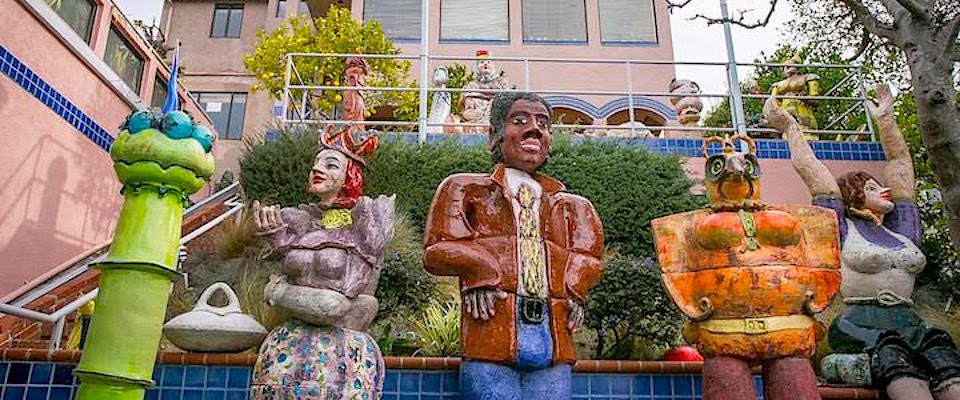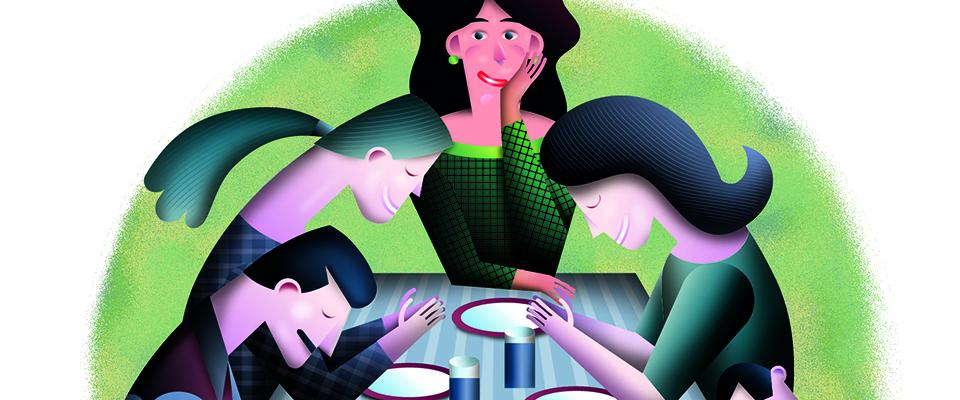The following chapter “Biography” has been excerpted from I WILL BE COMPLETE: A MEMOIR (2018) by Glen David Gold. Used by permission of Alfred A. Knopf, a division of Penguin Random House LLC.
I FOUND A ROOM IN A HOUSE in north Berkeley, on Mariposa, a one-block street where the trees had been planted a hundred years before. There was moss between the bricks, and ivy on the stone pillars at each end of the block. It was the kind of place where the newest neighbor had been there fifty years. The landlady wore a housedress when she showed me the room, which had a view of the bay, and San Francisco in the distance. Her husband was housebound, so she said she liked quiet tenants. She was happy that I had a Walkman, because those had headphones.
When I was fourteen, I’d sent a story to Playboy (it wasn’t a sexy story—I’d heard that Playboy paid the most).
I arrived in January 1984, a week before instruction began. I read and I wrote and I tried to cook things that were too complicated for me. The local hills had trails and stairways made for running, so I took myself on five-or six-mile loops through Tilden Park, ending by running across the campus. It was almost empty there for break, except for the street people. On some days the rain was so hard it drove everyone inside except Polka Dot Man, who stood still on Sproul Plaza, facing the storm front like a bow sprite, wearing a poncho, also with polka dots.
When it wasn’t raining it was still dense with moisture all day. Running meant moving through these occluded fields of space where I had a bubble that traveled around me. When I did my wash at the laundromat, I sat on the sorting tables and read books I’d bought from Black Oak, next door. I told the folks there I’d worked at a bookstore, and the disdain of their response was enough to shut me up. I learned where to eat alone.
My father called me the day after I moved. He said, “I just realized something—you don’t live at home anymore.”
He sounded wistful. I didn’t know what to say in response, because I was surprised. In my mind, I hadn’t really had a home since I was twelve. When I was with him and Ann, I’d just been visiting a place I wasn’t entirely welcome. That he had a wave of paternal feelings now, arising only after I was gone, was almost funny to me.
Before I left Los Angeles, I’d finished a short story called “A Handful of Stones Scattering,” and I concluded after much thought there should not be a comma before the last word. It wasn’t a good story but it was convoluted enough that friends I showed it to suspected it probably meant something. There were three interlocking narratives that—it doesn’t matter. I sent it to Antaeus.
I kept writing drafts of a story that didn’t seem to begin or end anywhere. I couldn’t tell you if I was rewriting previous scenes or advancing them.
When I was fourteen, I’d sent a story to Playboy (it wasn’t a sexy story—I’d heard that Playboy paid the most) but this was the first writing I’d submitted anywhere since. I’d had a concrete thought most of my extended summer—I would have so many experiences at Hunter’s that on the other side of them I’d be a writer. This was the first step in making that happen. Antaeus’s reporting time, according to Writer’s Digest, was about three months.
When three months went by, I sent them a query with a self-addressed stamped envelope asking if they were still considering the story. About two weeks later I got the SASE back, with a one-line note begging for my patience. They were still considering it.
This was almost as thrilling as if they’d accepted it. If they were pondering it, that meant “maybe,” which meant I wasn’t entirely insane to think I was on the verge of launching myself.
I did a daily circuit of bookstores, starting with the used places on Telegraph and winding up where the bookstores had cafés in them. I bought used mysteries and read them in an afternoon. I read a book every couple of days, like Rosie, which I recommended to everyone I knew, and The Magus, which I didn’t understand but still recommended.
*****
WHEN I WENT TO UPSTART CROW BOOKS around closing, I lingered so I could fall into conversation with the cute girl who worked there, but she was always interested in counting out the register as quickly as possible. I couldn’t blame her, as I’d lost my spark.
And that was my ebb, I told myself, narrating as I walked down the street. I was telling myself the story of how I became a writer, finally. But then Antaeus accepted my story, I kept thinking, every time I came back to my house, only to find an empty mail table.
I kept writing drafts of a story that didn’t seem to begin or end anywhere. I couldn’t tell you if I was rewriting previous scenes or advancing them. It was still about a rich kid looking for his mother, who has disappeared in Los Angeles.
I recognized I’d done something deeply wrong by calling, and that shame drifted into the rest of the general shame I was feeling.
I also wrote out a recurrent fantasy: to have a house on an island with many rooms for many friends. I made lists of them: people I knew, like Owen; people I wished I knew. I assigned bedrooms to people whom I was sure existed: musicians and actors and poets who needn’t be successful, just passionate. I wanted to live on the island full-time with a woman, and I knew nothing about her yet. This could have made me feel optimistic but instead it made me anxious. How strange not to know a single quality I was looking for in an imaginary relationship.
My anxieties blinded me in some ways that make me cringe. I remember lying awake in my room. It was seven a.m. California time, and ten in New York. I had the telephone from the hallway resting on my sternum. I had Antaeus’s phone number on a slip of paper. The number wasn’t in the magazine. I’d had to look it up at Bancroft Library.
I called Antaeus to ask if they were still considering my story. The woman who answered took a few moments to comprehend that I was, in fact, an author who had submitted a story who was now actually calling their phone number to honestly ask them if they’d read it yet. I sensed that this didn’t happen too often.
She took my name and she confirmed that yes, they had it, and no, they hadn’t read it yet. Politely, I thanked her, and with equal politeness, she said goodbye.
I know my story didn’t really show back up at Berkeley that day, but it felt like it. It felt like Antaeus had invested in express delivery to make sure I had my story back. There wasn’t even a rejection letter, just all twenty-something pages of manuscript, paper clip unmoved, edges square. It wasn’t that they’d been pondering it—they hadn’t gotten to it yet, and had returned it unread. I recognized I’d done something deeply wrong by calling, and there was probably a list, and my name was now on it, and that shame drifted into the rest of the general shame I was feeling.
*****
I TALKED MY WAY INTO a Japanese portraiture class. This was another unfortunate idea. It was a graduate seminar, and I was an undergraduate junior with a total of one art history class behind me. The only reason the professor let me in was my confidence level. I assured her I could handle anything.
This is the problem with letting Los Angeles rhetoric apply to a Berkeley situation. Academia is somewhat about bluster, but not that much. The professor had us turn in drafts in progress so she could hand back comments that often ran half as long as the papers themselves. She was a good teacher, in love with her subject so much that it ate up the rest of her life. As I saw my classmates getting five- and ten-page critiques to prepare for their final submissions, I became worried.
I walked downstairs and was gravitationally pulled into a phone booth. I called my mother, collect. It’s now hard to believe just how much I still needed her.
My paper came back unmarked. Except for three words printed on the front page: “See attached cassette.”
It was a C-90, and she had crossed out what had been recorded on it before (Vivaldi). She had recorded seventy minutes of comments on it. There was genuinely nothing I had said in my twenty pages that was correct. None of my citations were done in the proper style, a minor issue compared to how none of my identifications were correct, nor were any of my interpretations supported by the evidence. It was as catastrophic a collapse of an academic project as she’d ever seen.
And yet I still knew she was being kind. After the initial sting of knowing how much I’d fucked this up, I could hear the patience she was drawing on as she walked me through what might be a better approach. She tried, line by line, to reargue my paper for me. Sometimes she stopped the recording so she could catch her thoughts, and her abilities with the current technology would show themselves, as I would hear a second or two of Concerto for Two Lutes in D Minor, one of my favorite pieces, before her nasal, patient voice would continue to untangle for me the possible depictions of the Kamakura high court.
It was, by the way, a Certron tape. I hadn’t known the company continued after they’d fired my father, but apparently the tapes were cheap and suited for the academic market. It took me days to listen to the whole thing on my Walkman, taking notes and trying to make the changes she’d suggested. I saw a lot of the spinning reels, the red label, and wondered when this tape, like the one Herb Alpert was listening to around 1972, might have the grace to jam up, sparing me this torture and sending me into oblivion.
I listened to most of it sitting with headphones on in Bancroft Library, at a long oak table in a room that seemed to extend to infinity. All around me were serious-looking, troubled-looking students who, like me, grasped at what to believe in, even if only until they’d finished their next term paper. By the time the tape was done, I didn’t know what I was anymore.
Maybe this was an opportunity. Maybe I’d get better at Japanese or maybe I’d find something I liked more.
I walked downstairs and was gravitationally pulled into a phone booth. I called my mother, collect. It’s now hard to believe just how much I still needed her. I felt like my professor had kicked me in the stomach, and my response was as primal as looking for an embrace.
When the operator connected us, my mother declined the charges. The operator apologized to me, then hung up. Later, my mother would explain to me that she wasn’t sure it was actually me calling. I didn’t understand who would be masquerading as me but I also understood that there were vague elements in her life that wished her harm.
I called my father. He accepted the charges, puzzled at why I was calling. I explained I’d botched something in my major of choice, not just any class, but the foothold I had on Japanese Studies. And it wasn’t a minor issue, but a conceptual disaster. It was a strange call for me, in that I knew I wasn’t going to get the comfort I needed. My father had never comforted me in my life. He was the one who always believed the underlying message of his own experience—that you are on your own, the world is cold, there is no God—was learned best if learned fast. So he wasn’t going to be much help. In fact, as I spoke, I had to figure out what I’d wanted in the first place. I made a pit stop at the detail that it had been a Certron tape, as I knew it would make him laugh. It did.
“Listen,” he finally said. “You wouldn’t believe some of the things I’ve fucked up in my life. I’ve written programs that brought systems to their knees.”
“Really?”
“‘Really?’ Oh, really.” He explained that I was lucky the teacher wanted to help instead of bounce me out of the program. He said I should take all her suggestions, go slowly, do the best I could, and then regroup. Maybe this was an opportunity. Maybe I’d get better at Japanese or maybe I’d find something I liked more. He didn’t say anything about having been fired for his mistakes. But he did say that how you reacted to success wasn’t as important for determining who you are as how you reacted to failure. I was now, along with the term paper, getting the results in my experiment in self-awareness.
I took a run in Wildcat Canyon, realizing I wasn’t a Japanese Studies major. I wasn’t obsessed enough. I wasn’t sharp enough to understand the culture, and I wasn’t clever enough to even bullshit my way through. I didn’t know what was left to me, as I obviously wasn’t much of a writer, either.





















